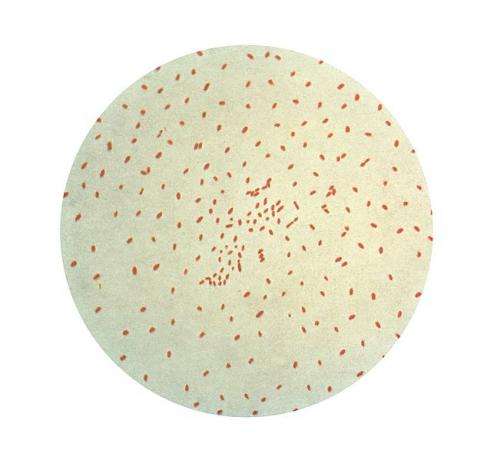Q&A: Pertussis most contagious during early stages of illness

DEAR MAYO CLINIC: Why is my health care provider recommending that I get the Tdap vaccine now to prevent whooping cough, even though I am in my late 70s? Doesn't whooping cough usually affect young children?
ANSWER: While it's true that babies are most at risk of pertussis infection and serious complications, older adults also can be vulnerable to the illness, even after being vaccinated. Your immunity to pertussis—often called whooping cough—fades after just five to 10 years of getting the vaccination. And even if you've had pertussis in the past, you still can get pertussis infection again in the future.
Pertussis is caused by the bacterium Bordetella pertussis, which spreads easily between people through the air. You can get pertussis if an infected person coughs or sneezes, sending bacteria-containing droplets into the air. Another reason pertussis spreads easily is because it's most contagious during the early stages of the illness before severe coughing begins and before those infected with pertussis know they have it. Pertussis is contagious for up to three weeks after symptoms begin. One person infected with pertussis can transmit the illness to many other people. Older adults are also at risk of complications of pertussis because of changes that happen to their immune system as they get older. Add to that the fact that cases of pertussis in the U.S. have been on the rise for several years. The increase in the number of people with active pertussis infection raises the risk that you subsequently can be exposed to the pertussis bacteria. The pertussis vaccination is given in combination with tetanus and diphtheria vaccines. It's called tetanus diphtheria and acellular pertussis booster and is abbreviated as Tdap. Even if you've had the vaccine before, you may need it again to increase the protection that you had from an earlier dose.
After a week or two, a pertussis infection usually leads to a cough. Signs and symptoms that point to a pertussis infection include coughing that lasts longer than two weeks and gets worse over time; long coughing fits that may lead to vomiting or near-vomiting; and coughing attacks followed by a sudden, deep inhalation -making a "whoop" sound as you catch your breath after coughing. Not every cough means you have pertussis. And not every case of pertussis has a cough or the telltale "whoop" sound after a cough.
Pertussis starts with cold-like signs and symptoms that could include a runny or stuffy nose, sneezing, a sore throat, or a mild fever. Another sign of pertussis is feeling exhausted after coughing. The hacking cough during a pertussis infection can be so severe in older adults that it can lead to a fractured rib. Pertussis also can cause other complications in adults, including trouble sleeping, struggling to breathe due to the cough, weight loss, leaking urine, fainting spells, an abdominal hernia, and broken vessels in the skin or eyes. In some cases, pertussis may lead to pneumonia, an ear infection or hospitalization.
Keep in mind that pertussis may look different in older adults. Adults who have some immunity to pertussis from being vaccinated or from having the illness in the past may experience milder signs and symptoms. They also may not have a severe cough or hear a "whoop" sound after coughing. See your health care provider if you have even a mild cough for longer than two weeks or if you develop a cough after you've been exposed to someone who has been diagnosed with pertussis. The test for pertussis involves a swab of the back of your nose and testing the mucus for the bacterium that causes pertussis.
Because it can take days for the test results, your health care provider may recommend starting an antibiotic right away if you have signs and symptoms of pertussis. When administered early during infection, an antibiotic can shorten the time that you feel symptoms of pertussis and reduce the severity of your cough. Antibiotic treatment is most effective when taken within the first three weeks of infection, and the sooner the antibiotic is started, the more effective it is.
After five days of taking antibiotics, you'll typically no longer be contagious. The best way to protect yourself from a pertussis infection is to keep it from developing in the first place by getting the Tdap vaccine. The Centers for Disease Control and Prevention recommends that unvaccinated adults receive a single shot of the vaccine. Most people who receive the Tdap vaccine don't experience a reaction. If you do, the most common reaction among people 65 and older is pain and swelling at the injection site. You could get pertussis even after getting vaccinated, but you're less likely to have a serious infection and your symptoms won't last as long.
©2020 Mayo Foundation for Medical Education and Research
Distributed by Tribune Content Agency, LLC.


















